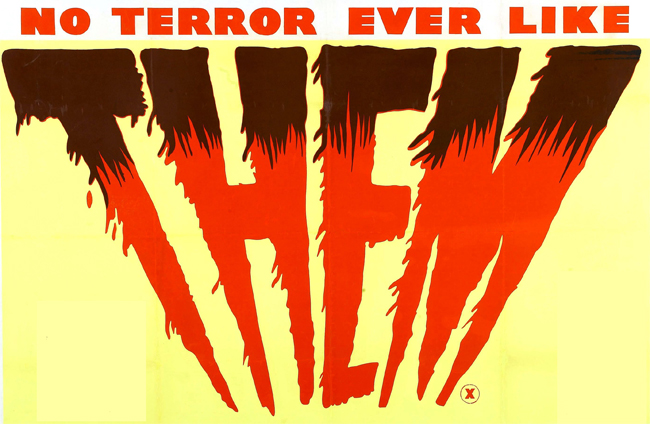

By David Poland poland@moviecitynews.com
20W2O: The “They” In Award Season
You hear a lot about “Them” this time of year.
They don’t think this. They don’t think that. They don’t respond well to this, but they love that.
What continues to keep The Academy Awards the dominant award in film is that with nearly 6000 potential voters, there can be no They.
There are some broad generalizations that do seem consistent. They like some heft to their films, even more as winners than nominees. They don’t embrace what they see as silly. They don’t want to be associated with movies that are seen as financial failures. They tend to be a bit racist, a bit xenophobic, and none too anxious to mix laughs with gold. And they really don’t like to be told what they have to do… not so they are conscious of it, at lease.
But these are broad terms. I have found over these 15 years or so that every time any of us think we have a bead on how They think or what They will do, We are wrong.
The first line of argument against Zero Dark Thirty? They won’t award Kathryn Bigelow twice in 4 years. Apparently that argument is not such an issue for Tom Hooper, who won two years ago. Spielberg went six years between directing Oscars. Ang Lee’s gone 7 years since his win. Coppola didn’t get 2 in 3 years because he lost to Fosse & Cabaret in the year of The Godfather. (Shocking side note: Gordon Willis wasn’t even nominated for Godfather or GII.)
Even without the specific They-isms, history is a pretty harsh mistress for wannabe Oscar prognosticators as well. They don’t like comedies… except when they do. They don’t like musicals, except when they do.
The move to 10 – and now, 5 – 10 – nominees really changed the notions of what They will honor. The Hurt Locker was the worst commercial performer ever to win a Best Picture Oscar… and there have been more nominations for “underperforming” films in this system than ever before.
They are certainly kinds of films that They like… but ultimately, being the kind of film They like isn’t nearly as important as the film itself.
It’s a weird thing, because We really do have a pretty good beat on what They will nominate, in part because We have told them what should be seriously considered for nomination. And they are looking for ways of narrowing the field so they don’t feel compelled to watch every film. But They will still surprise Us… in some small ways.
I tend to work from the other side of the equation. Yes, I speak to plenty of awards voters. But I start with the movies themselves. They know two things. 1. What they are told about the movie they haven’t seen, and 2. How they feel about the movie they have seen. What story will work for Them?
Sometimes the idea of what to expect takes… sometimes it doesn’t. Sometimes the movie itself changes the story completely. Other times, not so much.
I get the feeling that this year, as much or more than any other in memory, that They are just going to make up their minds on their own terms. Narrowed field, but not so interested in being influenced, as brilliant as some of the influencing is. Of course, the really big question – probably to go unanswered – is how many Academy voters will miss nominations altogether because of the newly inflicted voting system and the questions about how easy it will really be to use when people get around to voting… by January 3.
It’s all up to Them now.















10 days until voting starts, which movies havnt been seriously seen? Quartet moved up, amour has made their moves. Friggin promised land made abig push this week with the today show. I feel like the only movies not realy seen due to the unmitigating horror of earlier voting are guilt trip and billy crystal the grandfather schmuck movie. And they were never contenders.
Oliver Stone won Best Director twice in four years. I still think Affleck will take that award in a split year with some other film getting BP, and ZD30 could well be it, especially if LINCOLN and LES MIZ splits the older, more conservative vote.
“Oliver Stone won Best Director twice in four years.”
This makes me sad.
This is a great point. People talk about The Academy like they talk about Hollywood. As if they’re both made up of 20 guys sitting in a room.
I think that statistic about previous winners and Oscar only take part if there is a real close vote. Right now, I do not think it matters that Bigelow won not too long ago. I think she would win bot h BP and BD if vote held today. But if something like SLP or Life of Pi were to pick up steam then they would be more likely to give it to Russell or Lee who never won over Speilberg or Bigelow. Hopefully DGA can shed some light on the matter.
pj: As Dave mentions, Ang Lee has won before (for BROKEBACK MOUNTAIN).
I’ve always felt that Coppola’s loss for THE GODFATHER was at least partially due to voters wanting Fosse to have an Oscar-Tony-Emmy year (which he did).